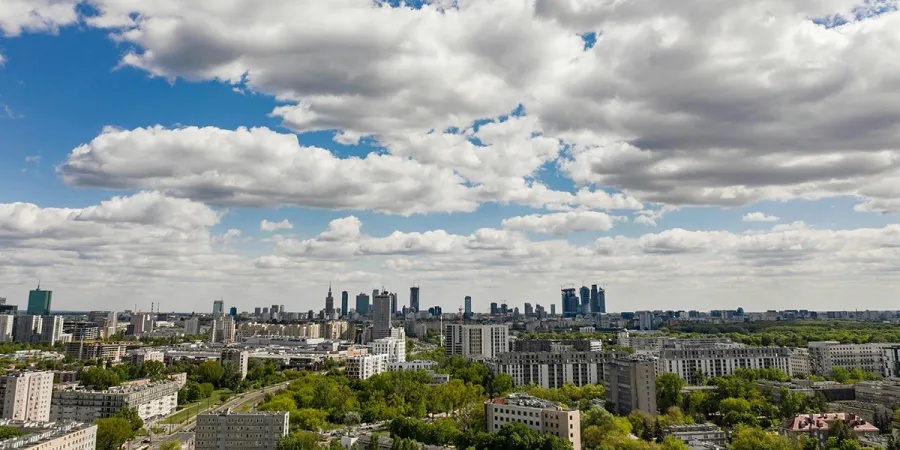Cyprus is located in the warmest part of the Mediterranean — the eastern part, where the swimming season lasts longer than in other resorts. The island is sunny, picturesque, and irresistible, attracting visitors worldwide. More than 40,000 people have moved to Cyprus in recent years. However, living in Cyprus has its benefits and challenges.
Planning to move here for work, retirement, or permanent residence? You’ll learn about all the pros and cons of living in Cyprus, job opportunities, typical expenses, and what to expect as an expat.
What are the Benefits of Living in Cyprus?
Many foreigners prefer to buy property in Cyprus, as it is more than just purchasing an apartment by the sea or in a European city — it’s a lifestyle choice and a new way of living. Find out more about the benefits of buying property on this picturesque island.
Unique Climate and Natural Beauty
Cyprus has a warm Mediterranean climate with sunny weather almost all year. Summers are hot, with temperatures often reaching 35°C (95°F) or higher, while winters are mild, around 10-15°C (50-59°F) in the coastal cities. If you love nature, Cyprus offers stunning beaches and scenic mountain views, perfect for hiking, swimming, or cycling.
- Summer temperatures: Around 35°C (95°F) in most areas.
- Winter temperatures: 10-15°C (50-59°F).
- Famous beaches: Paphos, Limassol, and Larnaca are top choices.

Then Cyprus might be your perfect match if you enjoy sunny days and outdoor adventures the year round.
Safety and Peaceful Environment
The island has low crime rates and is known for its peaceful environment. According to Numbeo, Cyprus’s crime index is 27.3, significantly lower than the European Union average of 44. This makes it one of the safest countries in Europe and an ideal place to live.
- Crime index: 27.3 in Cyprus vs. 44 EU average.
- Peaceful lifestyle: Safe neighborhoods and welcoming communities.
Easy Residency Process
The residency process is straightforward. Non-EU citizens can apply for a Permanent Residency Permit by investing in property or assets. Cyprus Government Portal promises you can obtain residency in just 2 to 3 months — one of Europe’s fastest processes.

- Permanent residency requirements: A €300,000 investment in property or similar assets.
- Processing time: Typically 2-3 months.
Low Taxes for Residents
It is well-known worldwide that Cyprus has the lowest taxes. This makes life easier for locals and attracts tourists who want to experience life as expatriates. After all, who wouldn’t want to pay the corporate tax rate, the lowest in the EU? Retirees also benefit, as they are exempt from taxes on foreign income and pensions.

- Corporate tax rate: 12.5%.
- Tax benefits for retirees: Reduced taxes on foreign income under certain conditions.
Do you like a secure and relaxed life? Would you like to enjoy taxes similar to those of Cypriots? Moving to Cyprus will make this dream come true.
What are the Disadvantages of Living in Cyprus?
While living in Cyprus offers many benefits, there are also challenges. It’s important to know this, analyze it carefully, and make an informed decision about moving.
Hot Summers and Limited Infrastructure
Summers in Cyprus are very hot, especially in inland areas. Air conditioning is a necessity, and it can significantly increase electricity bills. Also, you will need to buy a car, as public transport is not frequent or active, especially far from the island’s center.
- Summer temperatures: Regularly exceed 40°C (104°F).
- Electricity costs: The average monthly bill is around €80–€120, higher if air conditioning is used frequently.
- Transport availability: According to Statista, around 86% of households in Cyprus own at least one car, reflecting the limited public transport options outside urban areas.
Limited Job Opportunities in Some Sectors

While sectors like tourism, finance, and real estate thrive, other industries have fewer openings. For example, tech, research, or creative jobs are limited. Salaries in Cyprus are also generally lower than in Western Europe.
- Unemployment rate: Around 6.4%, but higher for young people.
- Average salary: About €1,800 per month, lower than the EU average of €2,500.
Bureaucratic Delays
Like many Mediterranean countries, Cyprus is known for its slow bureaucracy. Government services, such as vehicle licensing or permit applications, can take longer than expected.
- Average wait times: Government processes like vehicle registration can take weeks.
- Common complaint: Delays in property registration and visa applications.
If you value speed and efficiency, can’t stand the heat, and don’t drive, these aspects of living in Cyprus might feel frustrating.
What is the Cost of Living in Cyprus?
If you believe the latest digests from In-Cyprus, you will see that the island significantly differs from other Western European countries with attractive prices. It is one of the most affordable Mediterranean destinations, with lower prices for housing, food, transportation, and utilities. Let’s check the costs.
Housing Costs
Affordable housing is the main reason people move to Cyprus. Prices vary, with higher costs in tourist-heavy regions like Limassol or Nicosia. But they are still generally lower than in other Mediterranean destinations.
- Rent for a one-bedroom apartment (City center of cities like Limassol, Nicosia): €700 to €1,200 per month.
- Rent outside the city center: €400 to €600 per month.
- Property purchase price: €1,500 to €3,000 per square meter.
Food and Dining Costs
Food will always take up a large part of your budget wherever you live. It doesn’t matter whether you’re dining out with family at a restaurant, shopping for groceries, or cooking at home. However, local markets and grocery stores offer fresh produce at low prices.
- Meal at a mid-range restaurant: €15 to €25 per person.
- Monthly grocery expenses for one person: €250 to €350, including basics like fruit, vegetables, and protein.

Transportation and Utilities
Our expat guide to Cyprus mentioned that you can’t get by without a car. According to CarNext, buying a car will cost around €6,000 to €15,000. At the same time, fuel prices are more affordable compared to Europe. The main expense for electricity on the island is air conditioning.
- Monthly bus pass: €40
- Fuel price: €1.3 to €1.5 per liter.
- Monthly utilities (electricity, water, internet): €150 to €250.
Healthcare and Education Costs

Let’s start with some good news from Cyprus Health Services — healthcare is accessible and of a high standard, with state-run and private options. Insurance helps expatriates receive assistance more quickly. As for education, International Schools Cyprus reports it remains affordable, but if you’re aiming for a prestigious school, you’ll need to pay more.
- Private health insurance: €50 to €150 per month.
- International school tuition fees: €5,000 to €10,000 per year.
Food, transportation, and housing are the main contributors to your budget in Cyprus. If you’re considering a move, these factors are important to remember.
Living Expenses in Cyprus: Sample Monthly Budgets
Cyprus is a cheap place to live, especially compared to other European countries. The cost of living is lower than in cities like London, Paris, and Rome, including lower costs for housing, food, transport, and utilities.

- For Singles: A single person will spend around €1,500-€2,200 per month on rent, food, transport, and bills.
- For Families: A family of four will spend about €2,500-€3,500 each month, depending on lifestyle and location.
- For Retirees, the monthly cost usually ranges from € 1,200 to € 2,000, depending on whether they own or rent their home.
Cyprus offers affordable living compared to many other European countries, making it a good place for singles, families, and retirees.
Tips for Adapting to Life in Cyprus
Living in Cyprus is exciting, but there are a few things to know to make it easier. Here are some tips for settling in.
How to Find the Right Place to Live in Cyprus
Limassol and Nicosia are busy cities with plenty of amenities, but rent tends to be higher, averaging €700-€1,200 per month for a one-bedroom apartment. If you prefer something quieter and more affordable, try Larnaca or Paphos. You can find information about rental prices and properties on websites like Bazaraki.com, Cyprus Property News, and Facebook groups dedicated to Cyprus rentals.

How to Adapt to Local Culture
Cypriots are hospitable and welcoming. To fit in, learn basic Greek phrases like “Kalimera” (Good Morning). Cyprus also has a strong food culture, so try local dishes like souvlaki, halloumi, and meze.
How to Prepare for a Slower Pace of Life in Cyprus
Life in Cyprus can feel slower compared to other countries, especially regarding paperwork and bureaucracy. Be patient, as some processes, like registering your car, setting up utilities, or applying for permits, may take time.
How to Find a Job in Cyprus
The unemployment rate in Cyprus is around 6-7%, with higher levels of unemployment among young people. If you plan to move, it’s a good idea to research job opportunities in your field before making the move. Websites like JobsCyprus.com and GulfTalent list job openings regularly and can help you find suitable positions in your area of expertise.
Is Life in Cyprus Right for You?
Living in Cyprus is cheaper than living in many European countries — about 20-30% lower. The weather is warm, affordable housing is available, and life is relaxed. However, it can get hot in summer, and you’ll need to learn to drive (perhaps for a villa with space) and invest in health insurance. The benefits outweigh the drawbacks. If life’s slower and more relaxed pace doesn’t bother you, consider Cyprus your next destination!






